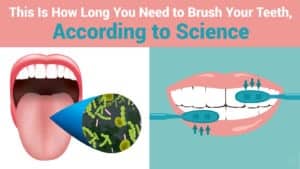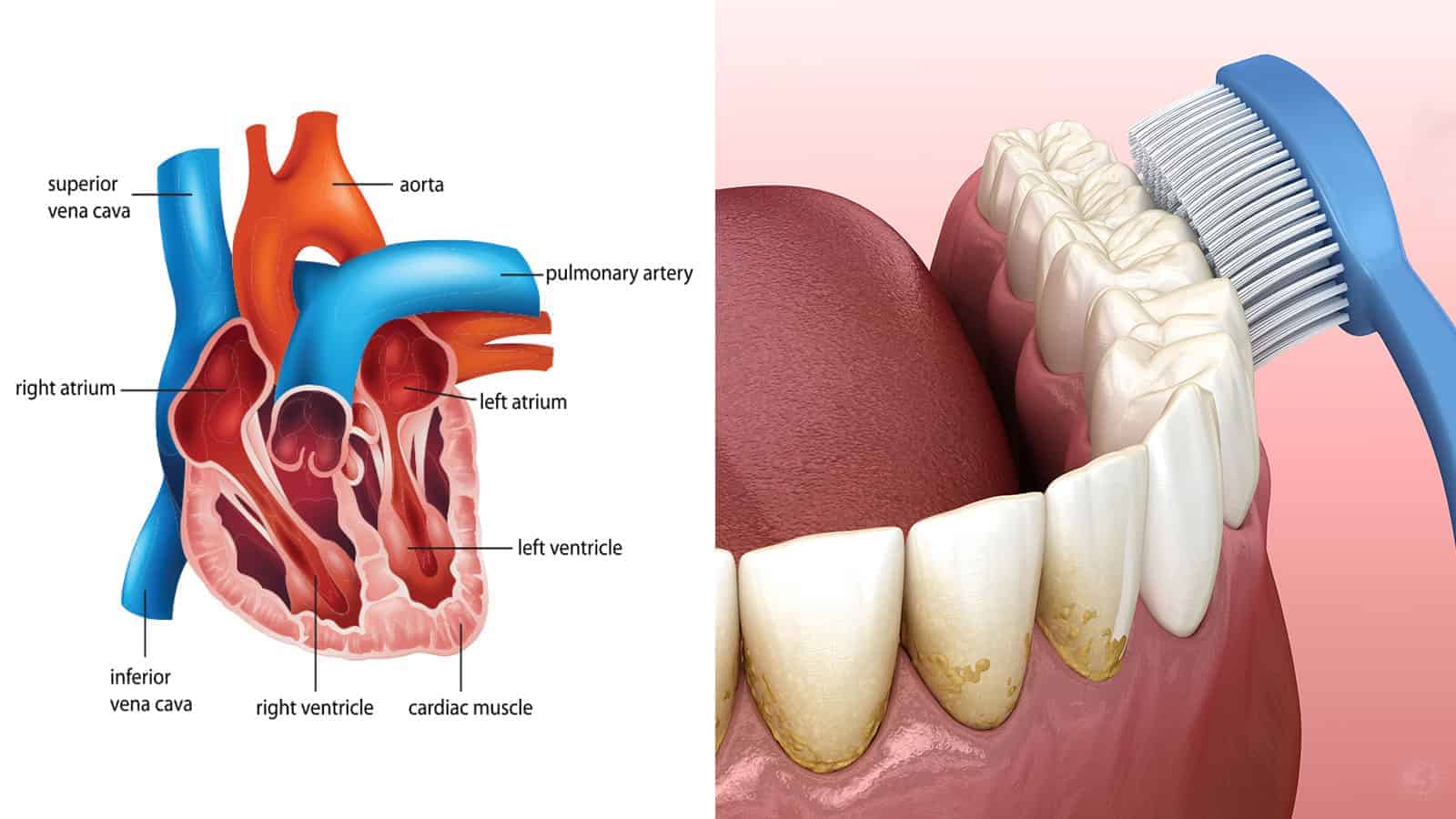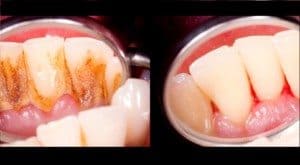Ever notice there are about three different types of people and habits related to brushing your teeth? There are the people who religiously brush and floss 2-3 times a day as we are taught by our dentist or in school. Another type is the ones who mostly only brush in the morning or evening and may or may not floss. Then there are the ones who might brush once a week or month or whenever they get around to it.
It’s not like brushing your teeth is difficult, but getting that timing right is a bit annoying. Do you brush right when you get out of bed in the morning? That doesn’t seem right because you’re going to be drinking coffee and eating breakfast within an hour. Maybe it’s better to brush them afterward. Cleaning after lunch doesn’t happen for probably 95% of us. Brushing before bed is the simplest one of all but also easy to skip because “Oh man, I’m just so tired.”
Good dental hygiene seems necessary to be instilled in childhood, and if it wasn’t, you might find it a pretty difficult habit to start as an adult. However, now brushing your teeth isn’t just about bad breath, cavities, and yellow teeth. Now, there may be a heavier motivator. Scientists explain how brushing your teeth keeps your heart healthy.
Healthy dental hygiene routine
Most of us are familiar with how our teeth accumulate plaque and tartar, which is a build-up of bacteria that then calcifies. Over time, it erodes your teeth and gum line. As more of your tooth becomes exposed from the gum line receding, that decay can then move into the root and nerve of a tooth. That process is called periodontal disease. The gum line receding and swelling is called gingivitis. Eventually, all the bacteria build-up into the root and nerve can become so painful that the tooth must be removed.
A build-up of sugars and plaque on the crown of your molar teeth can create cavities or a hole in your tooth. This decay leads to a shaft that must be filled, or the tooth will eventually crack, needing to be removed. None of it is fun in the long run and results in a dental visit and a bill no one wants. Any of these bacteria growth can lead to bad breath.
A proper dental hygiene routine should include:
- Brushing your teeth a minimum of twice a day, preferably three times, for two minutes. A soft-bristled toothbrush is recommended and a toothpaste containing fluoride.
- Using dental floss or a water flossing system to clean in between teeth.
- Using mouthwash not only to rinse out any lasting particles but also to freshen your breath.
- Rinse your mouth after eating sugars. Don’t consume sugary substances just before bed without brushing your teeth.
- Replace the toothbrush every three months, or anytime it looks frayed and ragged.
- Visit a dentist for cleanings and check-ups every three months.
- Oral tobacco use or smoking is not healthy for your teeth or mouth
- If you tend to have dry mouth due to medications, use an over-the-counter treatment designed for dry mouth. Our saliva is designed to help limit bacteria growth.
- A healthy diet with fruits and vegetables is not only good for building healthy teeth but can also aid in removing the sugars and plaque from the teeth in between brushing.
Certain diseases, such as diabetes or HIV/AIDs, can exasperate oral health. Knowing this in advance makes it even more important to maintain good dental hygiene. Additionally, weak teeth care can add complications to these and other diseases.
The link between brushing your teeth and your heart health
The necessity of maintaining a balance of the bacteria in and on our bodies is becoming more and more recognized. This is no different for the bacteria, which is in our mouth. Our mouth is the first direct connection to the rest of our body via our esophagus. When we have an influx of harmful bacteria in our mouth due to poor dental habits, it proves to cause conditions or diseases throughout our bodies. The correlation of the balance of our mouth bacteria, poor dental practices, and our heart health appears to be multifold.
1 – Mouthwash decreases the beneficial nitric oxide in our mouths
Nitric Oxide is a chemical created by our body, which has shown to have many benefits related to our respiratory system and therefore impacts our heart health.
- Production of mucus
- Dilates our vascular and bronchial tubes
- Influences the inflammatory cells in our lungs
- Neurotransmitter for neurons within the bronchial wall
Due to these effects, it is crucial to the body’s ability to carry oxygen throughout our body to the organs, including the heart. In turn, it influences our blood pressure and the effectiveness of how our heart operates.
A study examined how the bacteria in our mouths influence the production of nitric oxide. Nitrite is required to be broken down before it can form into nitric oxide. While it is still nitric, it transfers to our mouth via saliva, where it then meets with the bacteria in our mouth and is broken down. The scientists discovered that a mouthwash containing chlorhexidine antiseptic decreased the bacteria in our mouth. Thus, it reduced the formation of nitric oxide. The result was an increase in the subjects’ systolic blood pressure. This change was noted after one week with a twice a day usage of the mouthwash.
 2 – Poor dental hygiene related to atrial fibrillation and heart failure
2 – Poor dental hygiene related to atrial fibrillation and heart failure
It is understood that the bacteria in our mouth travels to other parts of our body. A study published in the European Journal of Preventative Cardiology demonstrated that this transfer of bacteria led to inflammation. 161,286 subjects were monitored for over ten years. None had any history of heart problems. During their observational time, 4911 cases of atrial fibrillation were reported, and 7971 cases of heart failure occurred.
After ruling out all other health and genetic factors, it was ruled that the subjects who had not been brushing their teeth three times or more a day, or visiting dentists for check-ups were indicative of those who were diagnosed with atrial fibrillation. Those with several missing teeth due to tooth decay was more indicative of heart failure.
3 – Stroke patients found to have mouth bacteria in their brain
Recently, a study in the Journal of the American Heart Association by a Finnish group who had been researching the possibility of mouth bacteria relating to ischemia strokes. They investigated the blood clots found in 75 stroke victims between 2013 and 2017. 63 of the victims had the DNA of a specific bacteria, viridian streptococci, which is commonly found in the mouth. This bacteria is also believed to be the cause of endocarditis, an infection that affects the valves, muscle, and wall of the heart. These same bacteria have been isolated in some patients who had heart attacks, brain aneurysms, or leg clots.
While the American Heart Association has yet to declare this evidence as certain contributing factors toward heart attacks or strokes, they do recognize the strength of the possibilities of their relationship. Further concrete evidence must be presented before your dental hygiene will be added to the list of heart-healthy things to do for your longevity. Still, many scientists and doctors are beginning to warn patients with certain additional risk factors.
Final Thoughts Connecting Brushing Your Teeth to Heart Health
Whoever would have thought that brushing your teeth may one day prevent a heart attack or stroke? It has already been recognized that poor mouth care can complicate other conditions or be made worse by other states, creating a cycle of illness. Brushing your teeth for heart health may soon be a more significant motivator to consider when you want to skip that session.
Where it used to be your mother or father telling you to brush your teeth, now scientists are explaining how brushing your teeth keeps your heart healthy. In short, brushing your teeth and seeing a dentist for check-ups may be the two-minute miracle to sustaining your heart health.


















